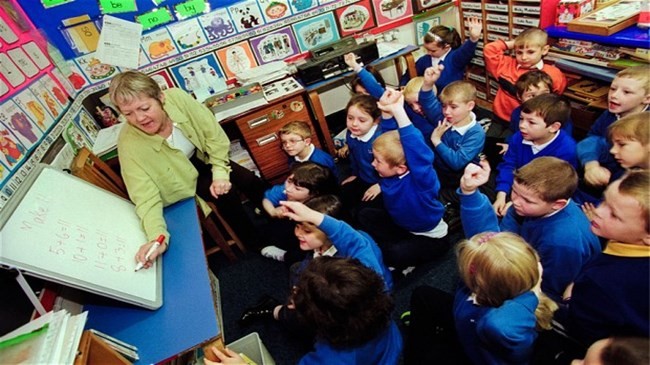By Gavin Mackintosh-
Hundreds of thousands of 6-year-olds are on track to become fluent readers since the introduction of the phonics screening check in 2012, official figures reveal today .
The results of this year’s phonics screening check and KS1 assessments also show the proportion of pupils reaching the expected standard in phonics was 82% in year 1, an increase of 1 percentage point on last year and up 25 percentage points since 2012. The news is a further testament to the efforts of the British government in raising standards at Uk Primary and secondary schools.
Free schools performed particularly well with 88% of pupils meeting the expected standard in phonics;
London is the best performing region with Wandsworth, Bromley, Newham and Hammersmith, and Fulham being the best performing local authorities in the country. The drive to raise the standard of reading in children as young as 6 is a sign of the British government’s plan to continue to raise the standard of education in primary and secondary schools in the Uk.
Rising early reading standards will help prepare primary school pupils better for their end of year Sats exams by the time they are 10, and increase their chances of attending a grammar school or meeting the academic requirements for a private secondary school for those pupils whose parents can afford it. Uk primary schools according to the programme for International Assessment League Tables(Pisa) has consistently fallen behind leading countries like Finland, Singapore, Hong Kong, and China, but beat Gemany and the Netherlands when compared in terms of standards in Maths , reading, and science, in a 2016 study.
DETERMINATION
The ministry of education has shown a determination to significantly improve the standard of education, and the tougher primary school Sats, G.C.S.E and A level papers of the last couple of years shows this.
The ministry of education say they are on track for raising reading standards in line with their overall goals. 1,268 schools had at least 95% of pupils achieving the phonics standard in year 1 in 2018, up from 1,076 in 2017.
At Key Stage 1 the statistics show 70% of children reaching the expected standard in writing, 75% of pupils reaching the standard in reading, and 76% of pupils reaching the standard in maths
The focus on phonics – where children learn to read by sounding out and blending letters – has played a significant part in the improvement in primary school standards. England has risen from 19th place in 2006 to joint 8th in the world reading league table (PIRLS).
Since the introduction of the phonics screening check in 2012, the proportion of pupils meeting the expected standard in phonics has risen from 58% to 82%.
Phonics provides pupils with the building blocks they need to read fluently and confidently, as well as aiding future learning and giving them the tools they need to express themselves. Other countries are looking to emulate the success of this approach, with policy makers in Australia currently piloting this screening check.
Thanks to the hard work of teachers and the introduction of a more rigorous national primary curriculum, standards are rising with the attainment gap between disadvantaged primary pupils and their more affluent peers shrinking by 10.5% since 2011.
School Standards Minister Nick Gibb said:
”Reading and writing are the foundations of education and once grasped can open up a world of literature and knowledge to young people.
Our continued focus on raising standards means six-year-olds are reading better than ever before – and we are setting an international benchmark, with Australia looking to follow our lead on phonics.
This is a huge achievement, improving the lives and education of hundreds of thousands of children but we remain determined to make sure that not just most children, but every single child is able to meet his or her potential.
The government has invested in programmes to help raise standards in our primary schools, including continuing to fund the successful Phonics Roadshows into 2018-19 and £41 million to follow the same approach to teaching maths as world leading countries through the Shanghai Mastery for Maths programme. This is on top of wider changes to the primary assessment system which will reduce unnecessary workload for teachers so they can focus on what really matters in the classroom.
Today’s figures build on the record 1.9 million children now in good or outstanding schools than in 2010 – an increase from 66% of pupils to 86%. The government is continuing to ensure all parents have a good school place on their doorstep, with the recent announcement of £680million to create 40,000 more good school places in primary and secondary schools. Since 2010, 825,000 new school places have been created, with recent analysis showing 91% of those in 2016-17 were in good or outstanding schools”.

